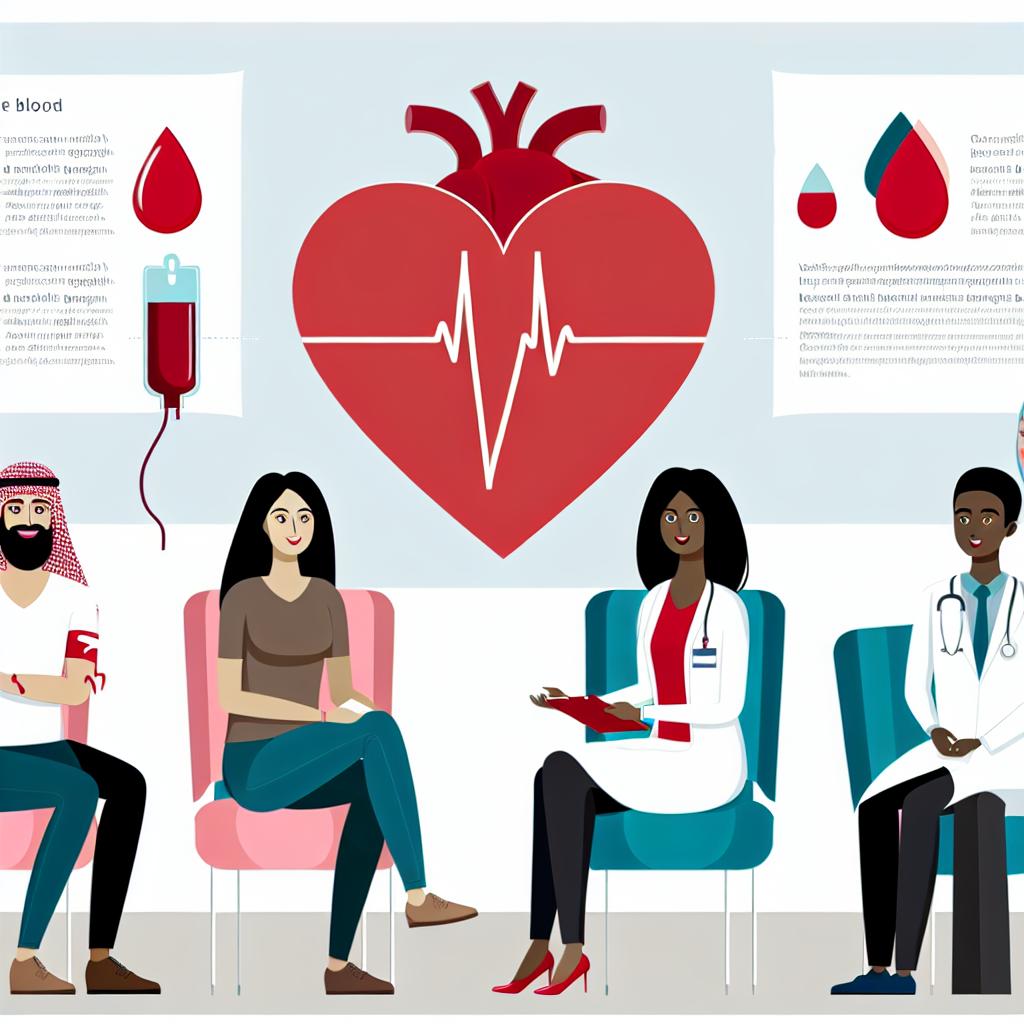Understanding the Connection Between Blood Donation and Heart Health
Donating blood does more than just save lives; it also offers potential health benefits to the donor, including a reduced risk of heart disease. This relationship stems from several physiological changes that occur when one donates blood. While the perspective of saving a life remains central to the act of blood donation, understanding these health benefits can provide further motivation for those considering becoming regular donors.
The Role of Iron in Heart Disease
Iron plays a crucial role in body functions, supporting oxygen transport and energy production. However, excessive iron levels have been linked to oxidative stress. Oxidative stress occurs when there is an imbalance between the production of free radicals, which can damage cells, and the body’s ability to counteract or detoxify their harmful effects with antioxidants. This cellular damage over time can increase the risk of chronic conditions, including heart disease. Through the process of donating blood, individuals lower their iron levels, thereby reducing oxidative stress. This reduction can, in turn, contribute to a lower risk of developing cardiovascular issues.
Blood Donation and Iron Depletion
Regularly donating blood leads to a slight but notable decrease in iron stores. This reduction is particularly significant because several studies have suggested that maintaining lower iron levels is correlated with improved heart health. For individuals with conditions such as hemochromatosis—a condition characterized by excessive iron absorption and accumulation—regular blood donation can be especially beneficial. In these cases, high iron levels can cause damage to various organs, including the heart, emphasizing the need for such a method of iron reduction.
Without the practice of donating blood, iron levels in the body might rise too high for some individuals, leading to increased oxidative stress and potential damage to blood vessels. By mitigating this risk, donors not only help prolong and save the lives of patients but also support their heart’s health.
Blood Viscosity and Heart Health
Another factor closely related to the heart health benefits of blood donation is blood viscosity. Viscosity refers to the thickness and stickiness of blood, which affects how easily it flows through the blood vessels. When blood is too thick, it flows more sluggishly, posing a risk for clot formation. These clots can obstruct blood flow, potentially leading to heart disease or other cardiovascular events such as strokes.
After donating blood, a donor experiences a temporary reduction in blood viscosity. This results in smoother blood flow, which can reduce the risk of arterial blockages. By enhancing circulation efficiency, the body may experience a reduced risk of clotting complications, thereby fostering improved cardiovascular health. Over time, regular donations may contribute to maintaining healthier blood viscosity levels, supporting ongoing heart health.
More Than Just Heart Benefits
While the primary focus here is on the heart health benefits conferred by blood donation, it is critical to recognize the broader health implications. When individuals donate blood, they often participate in routine health checks. These checks can provide feedback on their vital health indicators, such as blood pressure, pulse rate, and cholesterol levels. Such assessments can help donors stay informed about their overall health and potentially identify health issues before they become serious problems.
Moreover, the activity of donating blood may align with a more health-oriented lifestyle. Those who engage in regular donations might be more likely to adopt other health-positive behaviors, such as maintaining a balanced diet and engaging in regular physical activity. The benefits can extend to mental well-being as well, as the sense of community contribution and altruism may have positive psychological effects.
The benefits of blood donation underline the potential for it to be integrated into broader health maintenance strategies. While it should not replace medical treatments or lifestyle changes recommended by healthcare providers, regular blood donation serves as a valuable complementary approach to reducing the risk of heart disease and enhancing overall health.
Incorporating Blood Donation into a Heart-Healthy Lifestyle
Incorporating blood donation as part of a regular routine can play a significant role in maintaining cardiovascular health, aligning with broader efforts to prevent heart disease. While recognizing blood donation’s benefits for heart health is invaluable, integrating it should be part of a comprehensive approach that includes a heart-friendly diet, exercise, and regular medical check-ups.
Before deciding to become a regular blood donor, it is essential for individuals to consult with healthcare professionals. Professional guidance can ensure that their iron levels and overall health will allow for safe and beneficial participation in blood donation. Additionally, healthcare providers can advise on appropriate intervals for donation, considering individual health circumstances and needs.
Regular blood donation can complement efforts to reduce heart disease risk, yet it is not a standalone solution. Indeed, a heart-healthy lifestyle should include dietary choices that emphasize fruits, vegetables, lean proteins, and whole grains, along with consistent physical activity and careful management of stress levels. Collectively, these efforts can help maintain healthy blood pressure, cholesterol levels, and body weight.
Ultimately, blood donation symbolizes a commitment to both individual health and community welfare. The act connects individuals through a shared purpose of supporting others in critical need while also enhancing personal health outcomes. By giving blood, donors unify in addressing broader public health challenges, making a profound impact that transcends personal gain.
For those who may still have questions or are interested in more detailed information, reputable organizations such as the American Red Cross provide vast resources on the logistics and benefits of blood donation.
In conclusion, while blood donation is primarily an act of generosity with immediate life-saving effects, its potential to contribute to heart health makes it a unique and valuable aspect of personal health management. It serves as a reminder of the interconnectedness of individual health practices and their impact on broader societal health outcomes, reinforcing the profound significance of each donation made.
